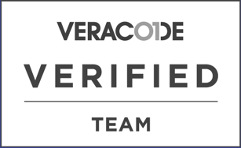Your Competition is Training

Sven Aunapu
Director of LifeLine Services & Education
| View From The Ridge: 64 |
July 8, 2016 |
Training is something that most of us make time for… once. Then, after that initial training, we believe that we are experts for the next millennia.
Take a moment to think about how important training really is.
- How often have you been trained in your lifetime?
- How many times have you been re-trained?
- How well trained are the people we trust with our finances, children, etc.?
We assume the most competent people are those most educated with the most training. Think about your medical specialist, your accountant or your mechanic. Each one of them has to be recertified and up-to-date on the latest medical procedures, tax laws and diagnostic tools.
We tend to understand how training has benefited us personally, but what does it do for the companies we work for? In a recent study of 3000 companies, the University of Pennsylvania found that 10% of revenue spent of capital improvement increased productivity by 3.9%. That same 10% spent on developing human capital increased productivity by 8.5%. This is a compelling factor! Some other benefits of training in the workplace include:
Training helps your business run better. Trained employees are better equipped to handle customer inquiries, make a sale or use computer systems.
Training is a recruiting tool. Today's young workers want more than a pay check. They are geared toward seeking employment that allows them to learn new skills. You are more likely to attract good employees if you can offer development opportunities.
Training is a retention tool. This instills loyalty and commitment from your workers. Staff looking for the next challenge will be more likely to stay if you offer ways for them to learn and grow while at your company. Don't give them a reason to move on by letting them stagnate once they've mastered initial tasks.
Training is essential for knowledge transfer. It's important to share knowledge among your staff. If only one person has special skills, you'll have a tough time recouping their knowledge if they suddenly leave the company. Spread knowledge around — it's like diversifying your investments.
Blue Ridge delivers the Supply Chain training that you need, and we supply the testing and certification for your company. Training is available for both new and experienced purchasing and demand planning professionals. We encourage our partners to develop in-house training departments and strategies—and of course, we will help with development.
If you are going to create a training department of your own, think carefully about what you’re trying to achieve. The aim is to improve performance but it’s easy to miss the mark with the wrong strategy. Be sure that your strategy has: Vision, Focus, Direction and a Documented Action Plan.
It’s essential that the training strategy is aligned with the organization's strategy and enables your vision. Once the strategy is developed, remember to keep the following points in mind to ensure successful delivery:
- Keep training cutting edge and future focused
- Make sure there is practical transfer of learning
- Put a development support network in place
- Commit to a core training value system
- Create a slogan or tagline to brand your training
- Bridge the gap between perception and reality
- Remember, your ‘students’ want to know, "What’s in it for me?"
- Calculate the value received
- Decide between on-the-job, classroom, distance learning, web-based or virtual training
- Consider access, location and distribution
- Establish what your students and management want/need
- Ensure your students know the training is meeting their needs
- Establish roles and responsibilities
- Monitor and evaluate progress
And most importantly… Make adjustments where necessary.


Comments are closed.